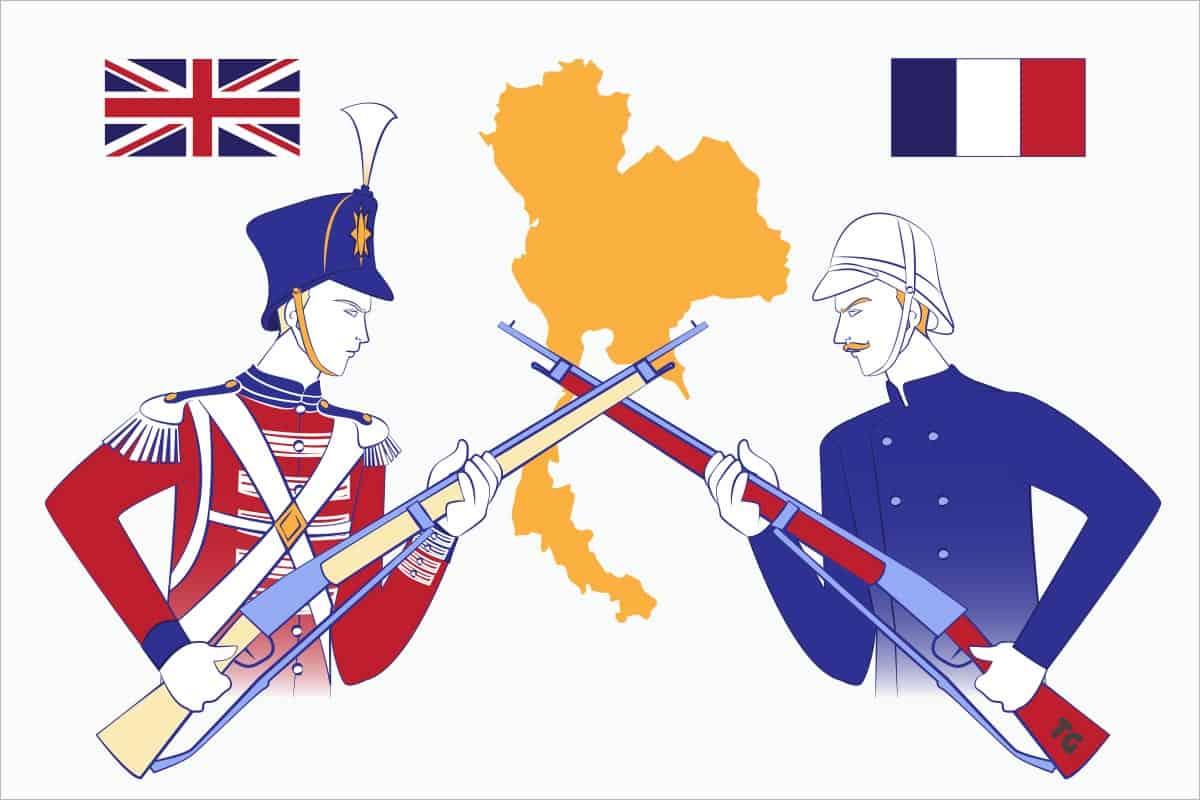Colonial period. These two words mark one of the darkest times in the history of all Southeast Asian countries — Thailand included. However, if you read your history book carefully, you may realize “Thailand was never colonized, was it?”
Thailand was never officially colonized by a European country. Although the country had been a target of Britain and France, it had managed to slip through their grips. However, that doesn’t mean Thailand made a clean escape. It also saw drastic territory loss and political and cultural changes.
Now, the question is, “how did Thailand do that?” What strategies and tactics did Thailand use to remain independent while its neighbors dropped left, right, and center?
Keep reading to find the answer and witness the story of Siam during the colonial period.
Was Thailand colonized?
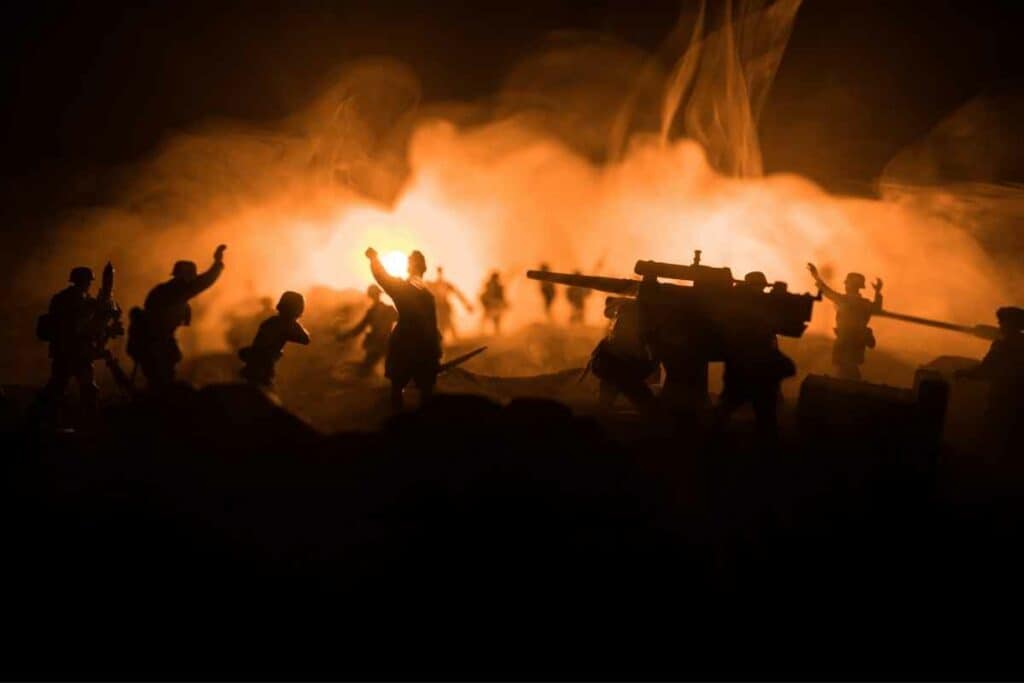
Thailand was never officially colonized by any European country. It is the only country in the region that maintains its independence to this day. And that was no simple feat.
Even Britain and France failed to conquer Siam (which became Thailand in the present). This fact alone proved that Siam was special. Since both Britain and France were two of the biggest colonizers back in the day, they should have had no problem taking over this small country. However, that was not the case.
While Britain dominated the land of Burma (now Myanmar) in the west, France took over eastern Laos, Vietnam, and Cambodia in the East. (Source, Source, Source)
Both countries couldn’t reach their hands beyond those territories. And as a result, Siam managed to escape with minor injuries.
Although slipping through the grips of the Europeans was impressive, it doesn’t mean Thailand had never been colonized at all. In fact, Thailand had been colonized by foreign powers before. The country capable of conquering Siam way before the boom of colonialism was Burma — Thailand’s once greatest nemesis.
During the days of the Siamese-Burmese war (which happened many times from 1547 to 1855), Siam had lost its sovereignty twice. Once was in 1564, and another in 1767. While Siam managed to regain its independence both times, the fact that it was conquered remains. (Source)
However, there is a big difference between the Burmese and the European efforts to overtake Siam. While Burma used brute force in wars, Britain and France tried to settle things through diplomacy tactics. Meaning: that they couldn’t force much out of Siam.
The timing was also a crucial factor. Had the Europeans “invaded” during other times, they might have had a chance. However, they invaded during King Rama V (1873-1910)— one of the most “crafty” rulers in Thailand’s history. (Source)
Why was Thailand a target colony?
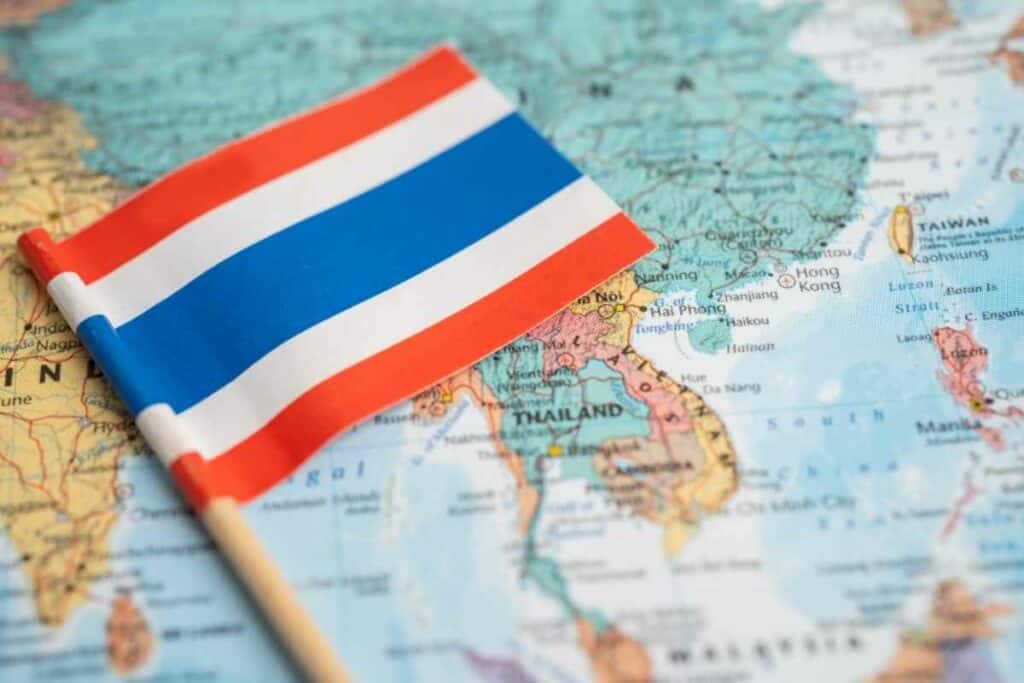
“But why Thailand?”
Before diving straight into “how did Thailand survive,” you might want to know why Britain and France targeted such a small country like Thailand in the first place.
The shortest answer would be “supplies, trade routes, and military influence.”
Asia was once the biggest exotic supply source for the Europeans. The most famous destinations were, without a doubt, India and China. To reach these destinations, both Britain and France needed to secure the trade route for themselves before the other could.
By overtaking India and Myanmar, Britain gained a massive advantage over other nations. They won supply sources and territory, making a huge profit for their empire. (Source)
The French, on the other hand, was doing something similar. They secured Vietnam and Cambodia, winning territory adjacent to China for resources and trade routes. (Source)
If you look at the map, you will see that Siam fitted nicely between the British and the French Colonies’ borders. And that posed a problem. Because if one nation took over Siam, it would control the Thai gulf, gaining even more resources and trade routes. Then, it became possible to mobilize forces and drive the other nation away.
In short, Siam was the location where the colonizer would greatly benefit both commercially and strategically.
How did Siam avoid colonization by a European nation?
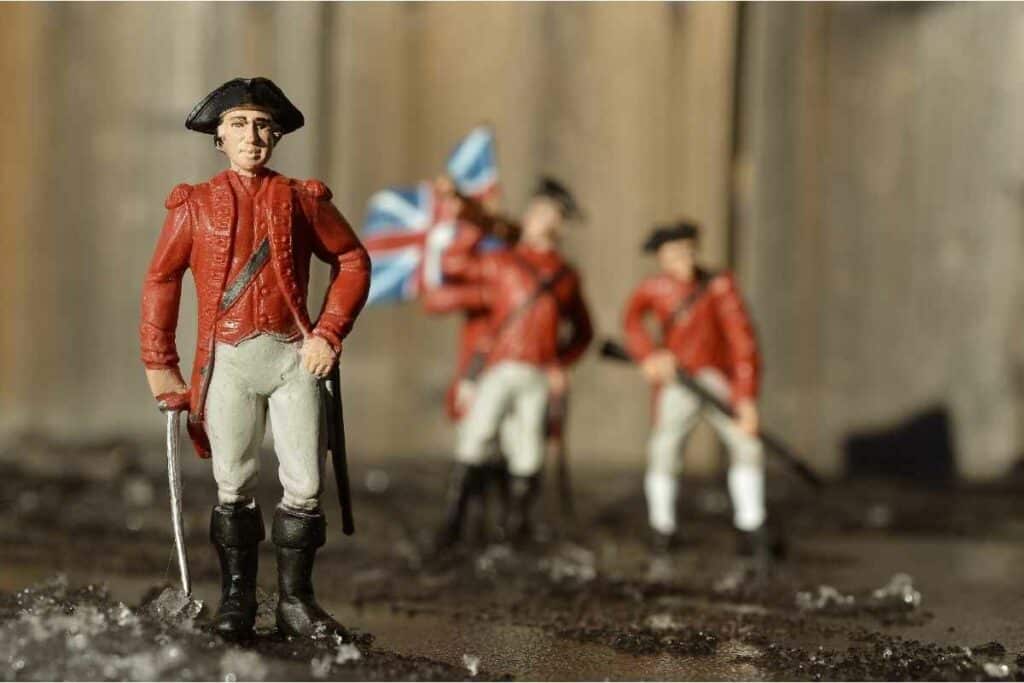
Capturing Siam was tricky.
With Siam being where it was, neither Britain nor France could blatantly invade. If one country did, the other would promptly stage a counterattack — nobody wanted the other to take over the Thai gulf, a valuable trade site and a gateway to China.
But despite all this tension, the Pak Nam incident happened in 1893.
During the Siamese-Franco war, Three French gunboats ignored Siam’s warning, and entered Pak Nam, resulting in a naval battle between the two countries. The French gunboats emerged victorious in the end and invaded Bangkok, setting their cannon at the royal palace. (Source)
King Rama V, to save the capital, was forced to sacrifice western Laos and various islands in the Mekong River to France. Furthermore, the French mobilized their fleet and blockaded the entrance to Pak Nam, closing down the entire trade route.
Unable to stay idle, Britain was pressured to get involved and demand the French stop. To avoid further conflict, the French agreed. They withdrew the fleet, reopening Pak Nam, but they did not return their new-earned territory. (Source)
This incident could have gone more horribly for Siam had King Rama V failed to foresee the colonial threat.
He prepared and modernized the nation by introducing Map making. This prevented the border issues the Europeans could bring up to justify colonization. He also centralized administrative power to himself and established the first official army. This might sound weird to you, but the Europeans back then loved the idea of one great ruler, so they approved of Siam as a civilized country.
To top it all off, Rama V also had established a great relationship with Russia. So when the incident happened, he also got Russia involved. This put more pressure on the French to back off. (Source)
Had Rama V failed in this modernization and diplomacy, Britain or France would have justified invading Siam and taking over long ago.
Why is it important that Thailand was never colonized?
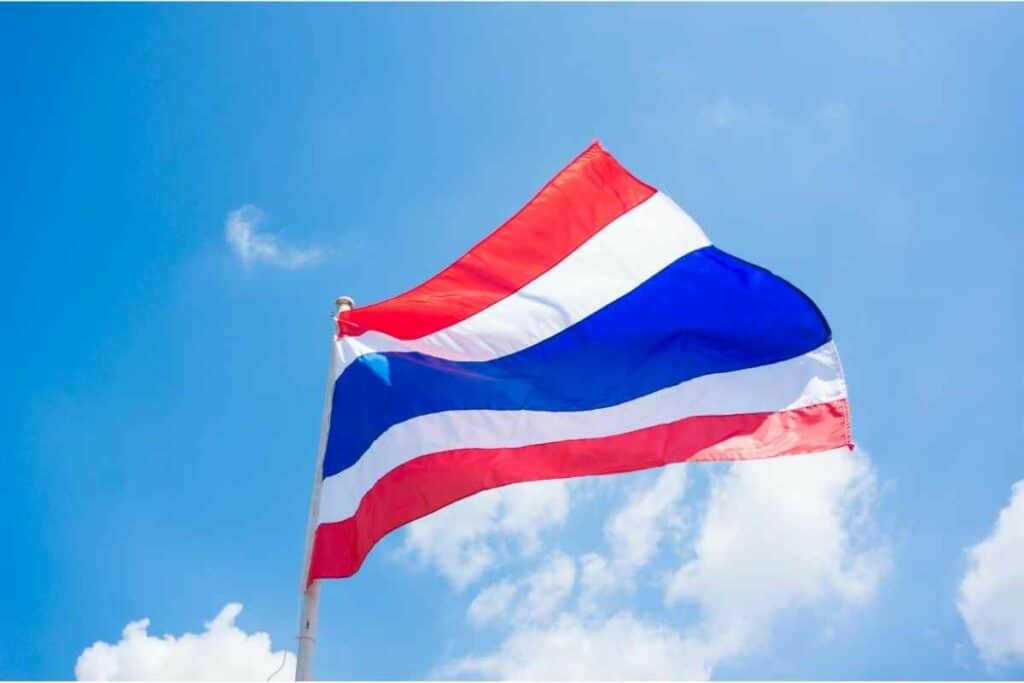
Thailand retaining its independence was impressive. After all, no other countries in the region managed to pull that off. However, Thailand’s independence might be more significant than you think.
First, maintaining the power balance
If you think about it, Siam’s independence might have maintained the power balance of the colonial period.
The location and geography of Siam were perfect. The country was abundant in supply and was the entrance to southern China. If Britain or France were to colonize Siam, that nation would gain much more influence and power over the other.
Owning Siam would prevent other countries from using the trade route, making resource harvesting much more difficult. The world’s wealth and power would have shifted, and history could have been different from what you know.
Second, preventing a large war
Before Siam could be colonized, a grand-scale war was inevitable.
As mentioned, Thailand sat at a sweet spot between British and French power. The tension was already high. Nobody was daring enough to blatantly invade. And if one nation was to invade, it had to fight both the Thai and the other nation’s armies.
With the number of British and French colonies, this battle could have caused massive damage to both sides and the rest of the world. Thailand, as the battlefield, would have been obliterated and then colonized by the winner.
How did the colonial period impact Thailand?

Even though Thailand has never been colonized by the Europeans, the colonial period definitely left a scar on the country.
The most obvious impact was the territory loss. Siam had lost its territory to Britain and France many times, resulting in 481,600-square-kilometres of land loss. The remaining 513,600 square kilometers would become Thailand. (Source)
Another impact is on the culture. To modernize the country, King Rama V adopted various cultures of the Europeans. These cultures included clothes, dining etiquette (specifically fork and spoon), and cars. In many ways, these cultures were helpful for Thailand’s development. But it also caused some Thai traditions to plunge in popularity — clothing being the most obvious. (Source)
The last impact was on the administrative side. Even though King Rama V centralized his power and saved the capital, the Thai would grow to hate the centralized idea later.
With the world open, more and more Thais went to study in Europe. These people saw the new world, learned new cultures, and brought them back to Thailand. And one thing they brought back was the democratic mindset.
As the wind of democracy blew in from the west, the absolute monarchy eventually ended. The country would change into a constitutional monarchy after King Rama VII (1925-1935).
What “IF” Thailand was colonized?
With all that being said, you might be wondering, “what would have happened had Thailand been colonized?”
As mentioned before, world history could have changed a great deal. The battle between Britain and France over Siam would have impacted the world unforeseeably. And whoever won would gain much more global power.
However, what would have happened to Thailand itself?
Would it be broken by religion and belief like in India? Or would it be divided into two different countries like Vietnam used to be? Here are some hypotheses for you.
What if Thailand was colonized by Britain?
To answer this question, look at other British colonies in the region and see what happened to them. Myanmar (or Burma back then) is a great example.
During the colonial days, The British quickly dealt with the Burmese monarchy. They got rid of their ruler by expelling Thibaw — the last monarch — out of the country, changing the Burmese administration forever.
On the religious side, they stripped the Burmese monks of their political influence. As a result, Buddhism lost its significance. People of the clergy circle also lost their status. Most importantly, the education system changed since Burmese traditional schools relied on Buddhism teachings. (Source)
With the two most important aspects of the country gone, Burma was no more Burma. It spiraled down political strife later down the road. It also suffered economically after the British changed the country’s industrial focus to exports, supplying the British empire. (Source)
As you can see, the same fate would likely befall Siam had it been colonized by Britain. Monarchy would be eradicated from the country. Buddhism would be less significant. The economy might be a little better for the export industry with the help of the Thai gulf, but the overall outcome would still be grim.
What if Thailand was colonized by France?
Like Britain’s case, you need to look at other French colonies in the region to answer this question. Laos is a great case here. Like Myanmar, Laos shares a border with Thailand and has similar cultures.
Even though the French took eastern Laos under their protectorate early in their invasion, they did not get rid of the monarchy. They still let the royal house run Luang Prabang — albeit under their influence.
As a result, Laos did not fall right into chaos like Burma. Even though the French imposed harsh taxes on the Laotians, they provided enough resources and development to keep Laos going. These included road building, slavery abolishment, art preservation, and much more. (Source)
Although the French started out quite friendly to an extent, the tax they imposed became a problem later on. The Laotians soon couldn’t take the economic issues and started to rebel. As time passed, Laos would also fall into turmoil even before the first World War. (Source)
Had Thailand been colonized by the French, nothing would have changed much. Since the monarchy would remain, Thailand would still be a constitutional monarchy country. The notable difference from current Thailand would be the worse economics thanks to the French taxes.
So what exactly made Thailand survive colonization?
Now that you are here, you might conclude that “Thailand was lucky.”
Had Britain and France appeared at a different time, Siam would never become a buffer zone between the two great powers. As a result, it would be trampled quite easily.
Had the Europeans targeted Siam before other Southeast Asian nations, the Siamese monarch would not have had time to prepare. Thus, leaving Siam extremely vulnerable.
Had one of these conditions not been met, Siam would have been colonized. But since Siam/Thailand was lucky with such conditions, it survived the colonial period.
And that was how Thailand kept its independence.
Like always, if you want to discover more about Thailand, stay guided with ThaiGuider. You might learn something you never knew about this unique country.
THINKING ABOUT A TRIP TO THAILAND?
I am working on a FREE Thailand Travel Guide with a FULL 7 Day Itinerary. Be the first to receive it!
Thank you for signing up.
Something went wrong.
